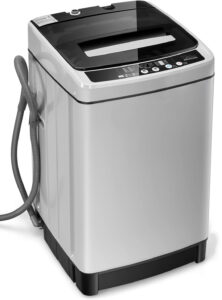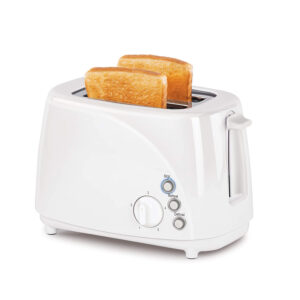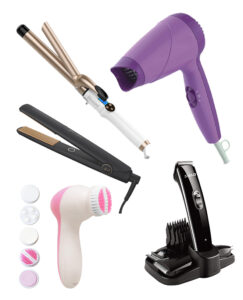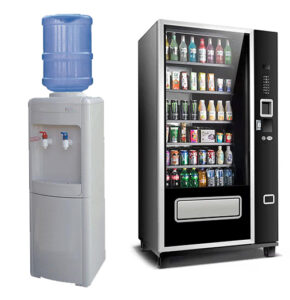BIS CERTIFICATION FOR SAFETY OF HOUSEHOLD AND SIMILAR ELECTRICAL APPLIANCES AS PER IS 302 PART 2
INTRODUCTION
In the modern era, household electrical appliances have become indispensable tools, enhancing convenience and efficiency in daily life. From washing machines to toasters, these appliances streamline tasks and elevate living standards. However, ensuring their safety and quality is paramount to safeguarding consumer well-being. In India, the Bureau of Indian Standards (BIS) plays a pivotal role in setting standards for household electrical appliances through regulations like IS 302 Part 2. Upholding these standards not only ensures product safety but also fosters consumer trust and promotes a culture of quality and reliability in the market. In this article, we delve into the significance of quality control orders, the BIS certification scheme for safety of electrical appliances, the role of Omega QMS Pvt. Ltd., and conclude on the importance of adhering to these standards for the betterment of consumers and the industry as a whole.
IS 302 PART 2 SECTION 7 SAFETY OF HOUSEHOLD AND SIMILAR LECTRICAL APPLIANCES PART 2 PARTICULAR REQUIREMENTS SECTION 7 DOMESTIC ELECTRIC CLOTHES WASHING MACHINES
This standard deals with the safety of electric washing machines for household and similar use, that are intended for washing clothes and textiles, their rated voltage being not more than 250 V for single-phase appliances and 480 V for other appliances. This standard also deals with the safety of electric washing machines for household and similar use employing an electrolyte instead of detergent. This standard does not apply to: a) washing machines intended exclusively for industrial purposes ; b) appliances intended to be used in locations where special conditions prevail, such as the presence of a corrosive or explosive atmosphere (dust, vapour or gas); and c) washing machines incorporating steam generating devices in which steam is produced at a pressure exceeding 50 kPa.
IS 302 PART 2 SECTION 9 SAFETY OF HOUSEHOLD AND SIMILAR ELECTRICAL APPLIANCES PART 2 PARTICULAR REQUIREMENTS SECTION 9 TOASTERS, GRILLS, ROASTERS AND SIMILAR APPLIANCES
 This standard recognizes the internationally accepted level of protection against hazards such as electrical, mechanical, thermal, fire and radiation of appliances when operated as in normal use taking into account the manufacturer’s instructions. It also covers abnormal situations that can be expected in practice and takes into account the way in which electromagnetic phenomena can affect the safe operation of appliances. This standard deals with the safety of electric portable appliances for household purposes that have a cooking function such as baking, roasting and grilling, their rated voltage being not more than 250 V. Examples of appliances that are within the scope of this standard are: a) barbecues for indoor use, b) bread makers, c) contact grills (griddles), d) cookers, e) food dehydrators, f) hotplates, g) portable ovens, h) raclette grills, j) radiant grills, k) roasters, m) rotary grills, n) rotisseries, p) toasters, and q) waffle irons. As far as is practicable, this standard deals with the common hazards presented by appliances that are encountered by all persons in and around the home. However, in general, it does not take into account: a) the use of appliances by young children or infirm persons without supervision, and b) playing with the appliance by young children.
This standard recognizes the internationally accepted level of protection against hazards such as electrical, mechanical, thermal, fire and radiation of appliances when operated as in normal use taking into account the manufacturer’s instructions. It also covers abnormal situations that can be expected in practice and takes into account the way in which electromagnetic phenomena can affect the safe operation of appliances. This standard deals with the safety of electric portable appliances for household purposes that have a cooking function such as baking, roasting and grilling, their rated voltage being not more than 250 V. Examples of appliances that are within the scope of this standard are: a) barbecues for indoor use, b) bread makers, c) contact grills (griddles), d) cookers, e) food dehydrators, f) hotplates, g) portable ovens, h) raclette grills, j) radiant grills, k) roasters, m) rotary grills, n) rotisseries, p) toasters, and q) waffle irons. As far as is practicable, this standard deals with the common hazards presented by appliances that are encountered by all persons in and around the home. However, in general, it does not take into account: a) the use of appliances by young children or infirm persons without supervision, and b) playing with the appliance by young children.
IS 302 PART 2 SECTION 23 SAFETY OF HOUSEHOLD AND SIMILAR ELECTRICAL APPLIANCES PART 2 PARTICULAR REQUIREMENTS SECTION 23 APPLIANCES FOR SKIN OR HAIR CARE
This standard deals with the safety of electric appliances for the care of skin or hair of persons or animals and intended for household and similar purposes, their rated voltage being not more than 250 V. Examples of appliances that are within the scope of this standard are: a) curling combs,b) curling irons, c) curling rollers with separate heaters, d) facial saunas, e) hairdryers, f) hand dryers, g) heaters with detachable curlers, and h) permanent-wave appliances. Appliances covered by this standard may incorporate steam-producing or spray-producing devices. This standard does not apply to: a) appliances intended exclusively for industrial purposes; b) appliances intended to be used in locations where special conditions prevail, such as the presence of a corrosive or explosive atmosphere (dust, vapour or gas); c) shavers, hair clippers and similar appliances d) UV and IR radiation appliances; e) sauna heating appliances; and f) appliances intended for medical purposes.
IS 302 PART 2 SECTION 31 SAFETY OF HOUSEHOLD AND SIMILAR ELECTRICAL APPLIANCES PART 2 PARTICULAR REQUIREMENTS SECTION 31 RANGE HOODS
This standard deals with the safety of electric range hoods intended for installing above household cooking ranges, hobs and similar cooking appliances, their rated voltage being not more than 250 V. The cooking appliance may be supplied by electricity or other fuels, such as gas. Appliances not intended for normal household use but that nevertheless may be a source of danger to the public, such as appliances intended to be used by laymen in shops, in light industry and on farms, are within the scope of this standard. This standard does not apply to: a) appliances intended for commercial purposes; and b) appliances intended to be used in locations where special conditions prevail, such as the presence of a corrosive or explosive atmosphere (dust, vapour or gas).
IS 302 PART 2 SECTION 75 SAFETY OF HOUSEHOLD AND SIMILAR ELECTRICAL APPLIANCES PART 2 PARTICULAR REQUIREMENTS SECTION 75 COMMERCIAL DISPENSING APPLIANCES AND VENDING MACHINES
 This Indian Standard deals with the safety of electric commercial dispensing appliances and vending machines for preparation or delivery of food, drinks and consumer products, their rated voltage being not more than 250 V for single-phase appliances and 480 V for other appliances. Examples of appliances that are within the scope of this standard are: a) bulk tea or coffee brewing machines; b) cigarette vending machines; c) coffee grinders; d) commercial liquid heaters; e) coffee makers with or without integrated coffee grinder; f) coffee makers with cooling systems; g) hot and cold beverage vending machines; h) hot water dispensers; j) ice cream and whipped cream dispensers; k) ice dispensers; m) newspaper, audio or video tape or disc vending machines; n) packaged food and drink vending machines; and p) refrigerated merchandisers. Appliances can have more than one function.. This standard does not apply to a) appliances intended to be used exclusively for household purposes; b) appliances intended to be used exclusively for industrial purposes; c) appliances intended to be used in locations where special conditions prevail, such as the presence of a corrosive or explosive atmosphere (dust, vapour or gas); d) commercial electric boiling pans; e) commercial electric bains-marie; f) amusement machines and personal service machines; g) appliances solely used for dispensing money; h) display cabinets; and j) appliances incorporating electrode-type water heaters.
This Indian Standard deals with the safety of electric commercial dispensing appliances and vending machines for preparation or delivery of food, drinks and consumer products, their rated voltage being not more than 250 V for single-phase appliances and 480 V for other appliances. Examples of appliances that are within the scope of this standard are: a) bulk tea or coffee brewing machines; b) cigarette vending machines; c) coffee grinders; d) commercial liquid heaters; e) coffee makers with or without integrated coffee grinder; f) coffee makers with cooling systems; g) hot and cold beverage vending machines; h) hot water dispensers; j) ice cream and whipped cream dispensers; k) ice dispensers; m) newspaper, audio or video tape or disc vending machines; n) packaged food and drink vending machines; and p) refrigerated merchandisers. Appliances can have more than one function.. This standard does not apply to a) appliances intended to be used exclusively for household purposes; b) appliances intended to be used exclusively for industrial purposes; c) appliances intended to be used in locations where special conditions prevail, such as the presence of a corrosive or explosive atmosphere (dust, vapour or gas); d) commercial electric boiling pans; e) commercial electric bains-marie; f) amusement machines and personal service machines; g) appliances solely used for dispensing money; h) display cabinets; and j) appliances incorporating electrode-type water heaters.
QUALITY CONTROL ORDERS (QCOS)
Quality Control Orders are regulatory measures issued by the Government of India to ensure the quality and safety of products sold in the country. These orders specify mandatory requirements that products must meet before they can be sold in the Indian market. For electrical appliances covered under IS 302 Part 2, specific QCOs are being contemplated to enforce compliance with safety standards and protect consumers from potential hazards.
BIS CERTIFICATION SCHEME FOR SAFETY OF ELECTRICAL APPLIANCES
The BIS certification scheme for Safety of Electrical Appliances as per IS 302 is a mandatory product certification scheme aimed at ensuring the quality, safety, and reliability of products sold in India. Under this scheme, manufacturers can apply for BIS certification for safety of electrical appliances as per IS 302, indicating compliance with relevant Indian standards, including those related to household electrical appliances like washing machines, toasters, hair care appliances, range hoods, and commercial dispensing appliances.
ROLE OF OMEGA QMS PVT. LTD.
Omega QMS Pvt. Ltd. epitomizes excellence in the realm of regulatory compliance consulting, specializing in navigating the intricate landscape of the Bureau of Indian Standards (BIS) certification process for manufacturers across India and abroad. With an illustrious legacy spanning over two decades, Omega QMS Pvt. Ltd. has cemented its reputation as a trusted advisor, guiding manufacturers through every facet of BIS certification with unparalleled expertise and domain knowledge.
Our distinguished team at Omega QMS Pvt. Ltd. offers comprehensive solutions tailored to the unique needs of each client, ensuring a seamless journey towards BIS certification for Electrical Appliances as per IS 302. From deciphering intricate regulatory requirements to orchestrating meticulous testing procedures and streamlining documentation processes, we leave no stone unturned in facilitating compliance with exacting BIS standards. Our meticulous approach and unwavering commitment empower manufacturers to not only navigate regulatory mandates effortlessly but also meet the evolving demands of the market with confidence.
Operating at the vanguard of regulatory compliance consulting, Omega QMS Pvt. Ltd. boasts a global footprint, extending our services to more than 40 countries worldwide. Our extensive network and profound industry insights enable us to forge enduring partnerships with esteemed Fortune 500 companies, further solidifying our position as a trailblazer in the field.
Moving forward, it is our unwavering mission at Omega QMS Pvt. Ltd. to continue delivering unparalleled regulatory compliance services, empowering businesses to thrive in an increasingly complex regulatory landscape. With a deep-seated understanding of the pivotal role compliance plays in sustaining business growth and fostering consumer trust, we remain steadfast in our commitment to excellence, integrity, and client satisfaction.
CONCLUSION
In conclusion, safety standards such as IS 302 Part 2 play a crucial role in ensuring the quality and safety of household electrical appliances in India. Through Quality Control Orders, BIS certification scheme for safety of electrical appliances, and the expertise of consulting firms like Omega QMS Pvt. Ltd., manufacturers can ensure compliance with these standards, thereby safeguarding consumer interests and promoting a culture of safety and quality in the electrical appliance industry. By adhering to these standards and partnering with reputable organizations like Omega QMS Pvt. Ltd., manufacturers can enhance consumer trust, improve product quality, and contribute to overall safety in the market.

For your certification needs pls contact info@globalomega.com 011-41413939 (100 LINES)
908-909, Hemkunt House, Rajendra Place,New Delhi – 110008, India

Comments (3)
It’s actually a nice and helpful piece of info.
I am satisfied that you simply shared this useful info
with us. Please keep us up to date like this.
Thanks for sharing.
This is my first time visit at here and i am in fact pleassant to
read all at single place.
Nice blog here! Also your web site loads up fast!
What web host are you using? Can I get your affiliate link to your host?
I wish my website loaded up as fast as yours lol